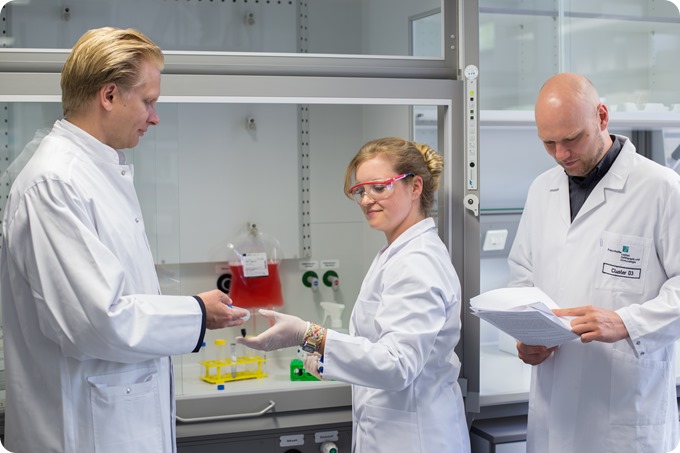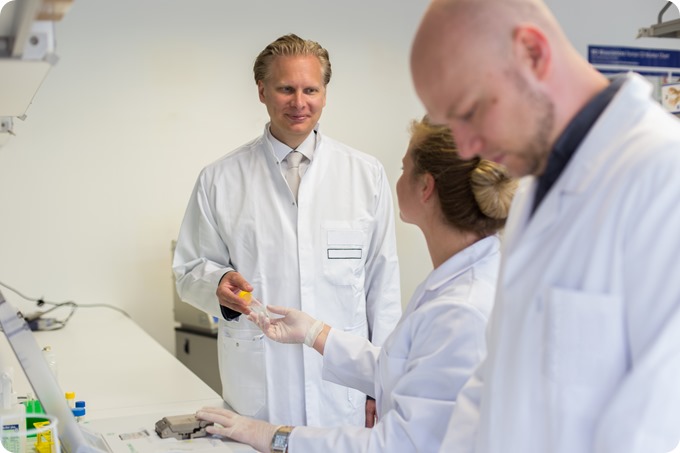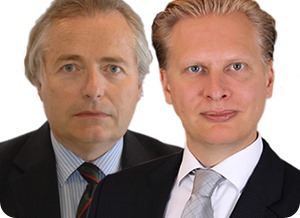
How does cancer immunotherapy differ from immuno-oncology?
Frederic Triebel: Cancer immunotherapy has been around for a century, a few products have been registered, like BCG, which was registered 30 years ago for superficial bladder cancer. Cancer vaccines have been part of the cancer immunotherapy field, but have not been particularly successful up to now.
On the other hand, immuno-oncology refers mostly to antibody blocking, which involves blocking the three main targets CTLA-4, PD-1 and LAG-3, there are a few products that have been developed that target LAG-3.
In 1990 you discovered Lymphocyte Activation Gene-3 (LAG-3). Can you please explain the significance of this discovery?
Frederic Triebel: In 1988 I cloned mRNA called LAG-1, LAG-2, LAG-3 etc. These were found to be expressed in T cells following cell activation. It took a few years to first develop antibodies to LAG-3 in order to study the function of the LAG-3 protein. I discovered that they had a high affinity for MHC class II molecules expressed on antigen presenting cells (e.g. dendritic cells, monocytes..). MHC class II molecules are at the center of the immune response, there is for instance a strong linkage equilibrium between certain MHC class II alleles and the emergence of auto-immune diseases. That's why LAG-3 as a high affinity receptor for MHC class II molecules was particularly interesting and it is why I continued working on this.
How much has our understanding of LAG-3 advanced since 1990?
Frederic Triebel: In 1994, we published a paper showing that blocking LAG-3 with an antibody increased the T cell immune response. We originally held a patent for this but it now has ended. In 1996, we first tested the product we are working on now and by the end of the '90s, these different approaches targeting the LAG-3/MHC II interaction were already well described.
Marc Voigt: All of the more modern approaches from the ‘80s and early 90’s are still used today in immuno-oncology, in terms of the three big targets, PD1, CTLA-4 with approved products and LAG-3.
The three mentioned target that have become the forefront of intense clinical research has only happened in the last five or eight years. Product approvals have been leading to a paradigm shift in the way cancer patients are being treated and will be treated in the future. While it appears like a modern revolution to the outside world, the roots are rather old.
Why is LAG-3 now the target of various drug development programs by pharmaceutical companies?
Frederic Triebel: The focus on LAG-3 from pharmaceutical companies is likely to be due to its clinical success and results. Other targets like OX-40, GITR or Tim-3 have been disappointing and so only a few hundred patients have been treated.
However, for anti-LAG-3 antibodies, more than 2,000 patients are currently enrolled or are going to be enrolled soon. This includes approximately 16 different clinical trials. Pharmaceutical companies such as BMS, Novartis, Merck, Regeneron, Boerhinger-Ingelheim etc., they all have blocking anti-LAG-3 antibodies in the clinic.

What do you think the future holds for immuno-oncology?
Marc Voigt: In the future, one is going to see an even stronger trend in IO and there will be a continued increase in investment into this field across the board. The use of immuno-oncology drugs in conjunction with more traditional approaches, like chemotherapy is becoming an increasingly popular approach with many combination clinical trials taking place.
Prima is the global leading LAG-3 company and you won't find any other company having as many different LAG-3 related programs. We are in later stage clinical development for our metastatic breast cancer chemo-immuno combination. Our mission and our goal is to play a vital role in this race even though we are of course smaller than big pharmaceutical companies. We hope to successfully continue our later stage clinical development and move towards registration of these products.
What are Prima BioMed’s plans for the future?
Frederic Triebel: We want to extend the number of combinations. At the present time, we are testing two combinations, one in breast cancer and the other one in melanoma. And certainly more combinations to be tested in the future, it's only a question of funding.
Marc Voigt: We have a clear mission to further develop in the IO field and also in auto-immune diseases. In the next three years, we will focus on clinical development, on later stage clinical trials.
Where can readers find more information?
Prima BioMed
About Frederic Triebel and Marc Voigt
Marc Voigt
Chief Executive Officer 
Marc has more than 17 years of experience in the financial and biotech industry, having joined the Prima team in 2011 as the General Manager, European Operations based in Berlin, Germany.
In May 2012, he became Prima’s Chief Business Officer and in November 2012 its Chief Financial Officer, as well as continuing to focus on its European operations.
Having started his career at the Allianz Group working in pension insurances and funds, he moved to net.IPO AG, a publicly-listed boutique investment bank in Frankfurt where he was focused on IPOs and venture capital investments.
Marc then worked for a number of years as an investment manager for a midsize venture capital fund based in Berlin, specialising in healthcare. He also gained considerable operational experience while serving in different management roles with Revotar Biopharmaceuticals, Caprotec Bioanalytics and Medical Enzymes AG, where he handled several successful licensing transactions and financing rounds.
Frédéric Triebel, MD Ph.D.
Chief Scientific Officer & Chief Medical Officer
Frédéric Triebel, MD Ph.D., was the scientific founder of Immutep S.A. (2001) and served as the Scientific and Medical Director at Immutep from 2004. Before starting Immutep, he was Professor in Immunology at Paris University. While working at Institut Gustave Roussy (IGR), a large cancer centre in Paris, he discovered the LAG-3 gene in 1990 and in subsequent research identified the functions and medical usefulness of this molecule. He headed a research group at IGR while also being involved in the biological follow-up of cancer patients treated in Phase I/II immunotherapy trials. He was Director of an INSERM Unit from 1991 to 1996.
First trained as a clinical haematologist, Prof. Triebel holds a Ph.D. in immunology (Paris University) and successfully developed several research programs in immunogenetics and immunotherapy, leading to 144 publications and 16 patents.